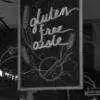-
Welcome to Celiac.com!
You have found your celiac tribe! Join us and ask questions in our forum, share your story, and connect with others.
-
Celiac.com Sponsor (A1):
Celiac.com Sponsor (A1-M):
-
Get Celiac.com Updates:Support Our Content
Allergy Testing Done
-
Get Celiac.com Updates:Support Celiac.com:
-
Celiac.com Sponsor (A17):
Celiac.com Sponsor (A17):
Celiac.com Sponsors (A17-M):
-
Recent Activity
-
- trents replied to englishbunny's topic in Celiac Disease Pre-Diagnosis, Testing & Symptoms3
Negative biopsy and seeking doctor recs in Los Angeles
If you have been eating the gluten equivalent of 4-6 slices of wheat bread daily for say, 4 weeks, I think a repeat blood test would be valid. -
- englishbunny replied to englishbunny's topic in Celiac Disease Pre-Diagnosis, Testing & Symptoms3
Negative biopsy and seeking doctor recs in Los Angeles
it did include Total Immunoglobin A which was 135, and said to be in normal range. when i did the blood test in January I would say I was on a "light' gluten diet, but def not gluten free. I didn't have any clue about the celiac thing then. Since then I have been eating a tonne of gluten for the purpose of the endoscopy....so I'm debating just getting... -
- trents replied to englishbunny's topic in Celiac Disease Pre-Diagnosis, Testing & Symptoms3
Negative biopsy and seeking doctor recs in Los Angeles
Welcome to the forum, @englishbunny! Did your celiac panel include a test for "Total IGA"? That is a test for IGA deficiency. If you are IGA deficient, other IGA test resultls will likely be falsely low. Were you by any chance already practicing a reduced gluten free diet when the blood draw was done? -
- englishbunny posted a topic in Celiac Disease Pre-Diagnosis, Testing & Symptoms3
Negative biopsy and seeking doctor recs in Los Angeles
I'm upset & confused and really need help finding a new gastro who specializes in celiac in California. Also will welcome any insights on my results. I tested with an isolated positive for deamidated IGA a few months ago (it was 124.3, all other values on celiac panel <1.0), I also have low ferritin and Hashimotos. Mild gastro symptoms which... -
- ShariW commented on Scott Adams's article in Additional Concerns9
Is McDonald's Gluten-Free? A Complete Guide to Safe Menu Options (+Video)
I got glutened at a McDonald's last summer (in the US), although I didn't eat any gluten-containing items. I had a cheeseburger minus bun with lettuce, tomato and onion, along with a strawberry-banana smoothie. Symptoms set in about 3 hours later (typical for me). Pretty sure it was due to cross-contact - I have no other food sensitivities. I did say "gluten...- burgers
- celiac disease
- (and 8 more)
-



Recommended Posts
Archived
This topic is now archived and is closed to further replies.